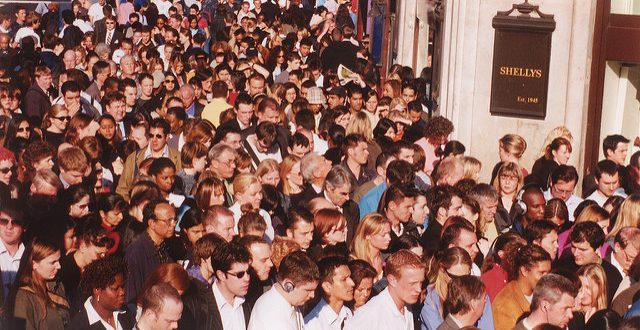People in secure full-time employment tend to be seen as the winners in any economy. However, as more firms look to freelancers to avoid the cost of directly employing people, it is this group that are most at risk.
According to Diane Mulcahy at Havard Business Review:
“Work is being disaggregated from jobs and reorganized into a variety of alternative arrangements, such as consulting projects, freelance assignments, and contract opportunities… As the jobs-based economy gives way to the gig economy, winners and losers are determined by the type of worker you are — or can become.”
At the top of the scale are workers with specialised skills and deep expertise, whose relative scarcity allows them to charge high fees to the companies that contract with them. New, flexible entrepreneurs can also win:
“Independent workers who are comfortable with and excited about developing their own income streams, marketing themselves, and connecting with others are best positioned to take advantage of the many opportunities the gig economy offers.”
Perhaps surprisingly, those at the bottom of the income ladder can also benefit. At the very least, being an on-demand worker on Fiverr or Task Rabbit is no worse than being employed on a zero-hours contract at Sports Direct; and in the gig economy you can turn the odd job down without risking your future employment. But it is groups that have traditionally been excluded that stand to gain most:
“Among the biggest beneficiaries of the gig economy are workers who have been stuck on the margins of our traditional jobs economy. Stay-at-home parents, retired people, the elderly, students, and people with disabilities now have more options to work as much as they want, and when, where, and how they want, in order to generate income, develop skills, or pursue a passion. Because it is now so much easier to work and earn income from home, part-time, and on a flexible schedule, the gig economy can provide choice, dignity, and a measure of financial control and opportunity to workers who previously had little of those things.”
The gig economy losers are the squeezed middle – people in traditional roles whose skills and experience are common and standardised:
“Their jobs, including ones like midlevel and low-level managers, executive assistants, or bookkeepers, are most likely to be automated, eliminated, contracted out, or outsourced to cheaper labor. Their incomes are stagnating, their benefits are shrinking, and they are too slowly coming to terms with the reality that there is no longer any job security.”
The question this poses is whether we are to fight against the gig economy or develop policies that promote it. On the fight side are the traditional trades unions – like the GMB which recently secured employment rights for Uber drivers. Against this, the gig economy fits well for those who favour a universal basic income (rather like child benefit for all adults) which would allow far more workers to choose the type and quantity of gig work they engage with.
How this plays out will largely depend on the way the economy develops. If – as seems increasingly unlikely – the 2008 crash was an aberration, and we will soon get back to business as usual, then traditional patterns of employment will survive and prosper. If, on the other hand, the falling productivity and anaemic growth of the last eight years is the new normal, then employment flexibility – underpinned by even more automation – is likely to be our direction of travel. If this is the case, far from seeking to impede and limit the gig economy, we need to ensure that we adopt appropriate policies to ensure that vulnerable workers’ welfare is not compromised when they participate.




